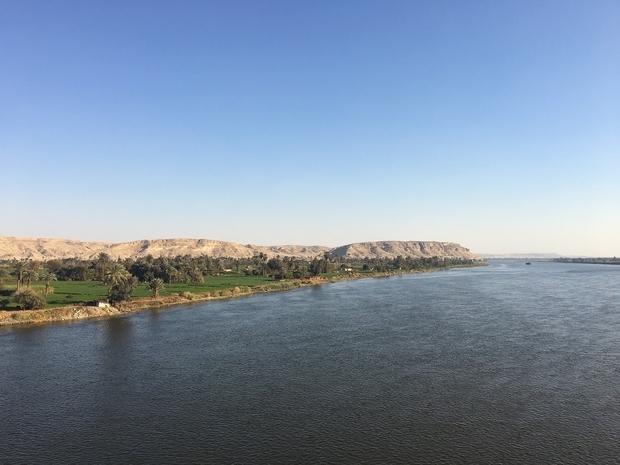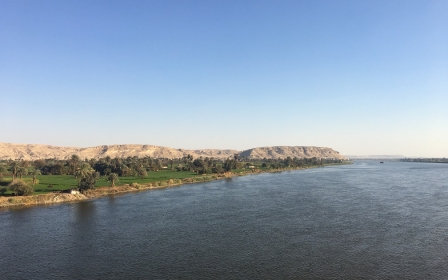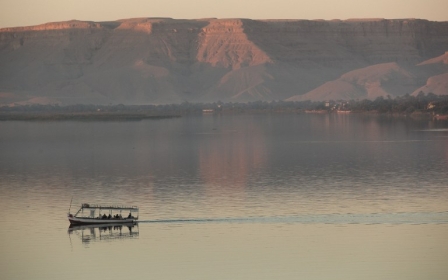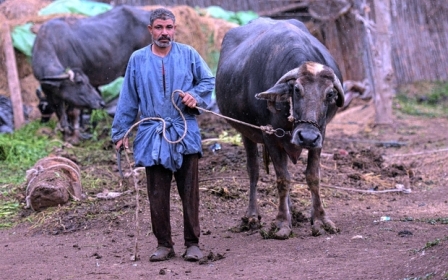Egyptian lawyers move to overturn Sisi's support for Nile dam project

A group of Egyptian lawyers and political activists are preparing a lawsuit to challenge a March 2015 preliminary deal agreed by Egyptian President Abdel Fattah al-Sisi on Ethiopia’s Nile dam project, reported local media on Wednesday.
The deal signed by President Sisi, Ethiopian Prime Minister Hailemariam Desalegn, and Sudanese President Omar al-Bashir, asserted Ethiopia’s right to build the Grand Ethiopian Renaissance Dam (GERD), a decision that has caused huge concerns in Egypt over its water supply and ability to generate hydro-electric power.
The news comes after Sisi faced calls on Tuesday to be prosecuted for treason following a court’s ruling against his government over the proposed transfer of the Red Sea islands of Tiran and Sanafir to Saudi Arabia.
The group of lawyers and activists now aim to overturn Sisi’s decision to agree to the Nile Dam declaration, claiming that the agreement is not in the interests of Egypt.
The signing of the declaration was “like a dream” for the Ethiopian counterparts, sources among the group of lawyers and activists told Alaraby newspaper on Wednesday, while claiming that the Ethiopian negotiators took advantage of the deal and collected international funding for their project.
Why Egyptians are worried about the GERD
Any development which might interfere with the flow of the Nile waters is of great concern to Egypt. Most of its more than 90 million people live within a few kilometres of the river.
The river supplies the bulk of the country’s drinking water and irrigates the Nile Delta, one of the most fertile regions on the planet. Any drop in the level of the Nile as a result of developments upstream could seriously affect water supplies, already under severe pressure.
The Nile also generates about half of Egypt’s electricity through the operation of the Aswan High Dam, built in the 1960s with the help of the Soviet Union.
The 2015 agreement was based on a "declaration of principles" to ensure that the construction of the dam would not harm Ethiopia's neighbours and will compensate them should it negatively affect their interests.
But many Egyptians – and indeed Sudanese, who will also be affected – fear that their towns and villages will be swept away should it ever collapse.
Ethiopia began building the dam - known in Egypt as the El Nahda Dam - in April 2011, at a then-cost of $4.7bn. The structure – which is 1,800 km long and will have a volume of 10 million m³ - is expected to be completed in July. It will eventually produce 6,000 megawatts of electricity according to its backers.
The dam, which is now more than 70 percent complete, is regarded as central to Ethiopia’s ambitions to become an economic powerhouse in Africa.
The government in Addis Ababa has said that the project will not harm the interests of other nations, including Egypt.
Attempts were made to build the dam during the era of former Egyptian president Hosni Mubarak, who asserted that Egyptian access to its annual quota of the Nile’s waters was a matter of life or death. But Mubarak was overthrown in January 2011: construction work on the dam began six months later.
Sisi has said that while Ethiopia has a right to plan for its future, he will not forfeit Egypt’s historical rights to access the waters of the Nile, rights which were ingrained in international conventions signed during the period of European colonial occupation.
But successive Egyptian administrations seem to have been caught by surprise by Ethiopia’s determination to implement the GERD.
The fact that the project is progressing – and has won the support of many of Egypt’s neighbours to the south - is also seen as an indication of Cairo’s waning influence in Africa.
New MEE newsletter: Jerusalem Dispatch
Sign up to get the latest insights and analysis on Israel-Palestine, alongside Turkey Unpacked and other MEE newsletters
Middle East Eye delivers independent and unrivalled coverage and analysis of the Middle East, North Africa and beyond. To learn more about republishing this content and the associated fees, please fill out this form. More about MEE can be found here.




